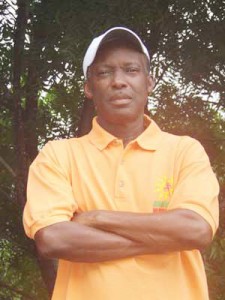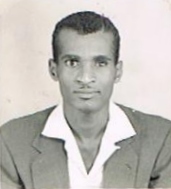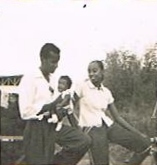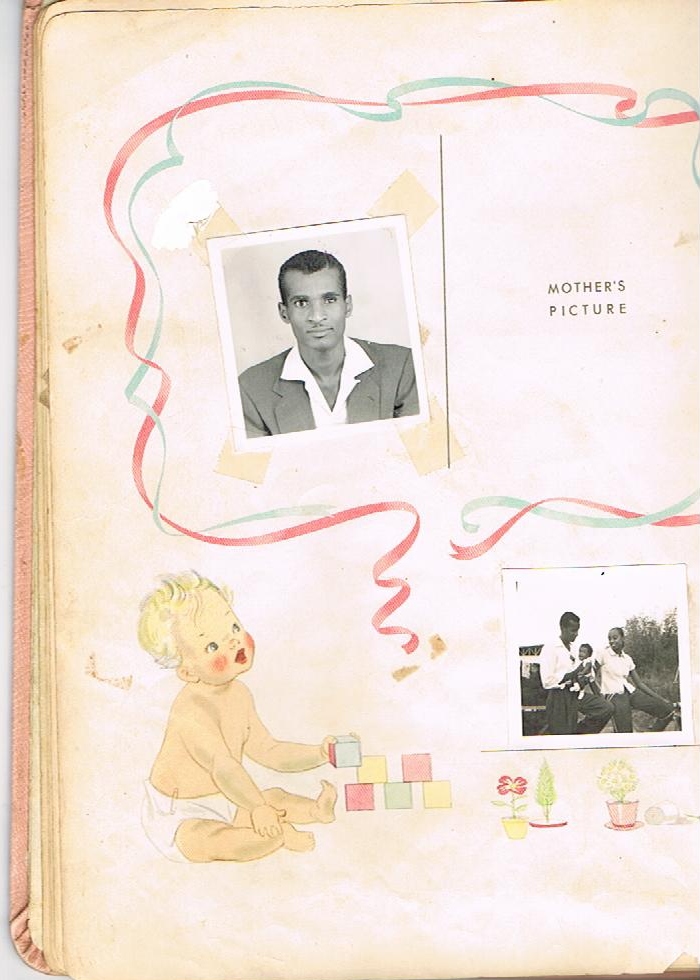Guest Writer
Guest Writer's Latest Posts

Comic actor Norman Wisdom dies aged 95
 (The Guardian): Big in Albania, and huge in the affection of generations of his fans, comedian Sir Norman Wisdom, one of the last great survivors of the music halls, has died aged 95. His deceptively artless comedy, usually based on his role as "The Gump", a downtrodden, sad faced little man in a battered cap and a deplorably ill-fitting suit, concealed immense technical skill, superb comic timing, and a sharp business mind. Although best known as a performer, he was also a talented song writer. His family announced that he died peacefully in a nursing home on the Isle of Man, where he had lived for the last 30 years.
(The Guardian): Big in Albania, and huge in the affection of generations of his fans, comedian Sir Norman Wisdom, one of the last great survivors of the music halls, has died aged 95. His deceptively artless comedy, usually based on his role as "The Gump", a downtrodden, sad faced little man in a battered cap and a deplorably ill-fitting suit, concealed immense technical skill, superb comic timing, and a sharp business mind. Although best known as a performer, he was also a talented song writer. His family announced that he died peacefully in a nursing home on the Isle of Man, where he had lived for the last 30 years.
Study identifies more than 1 million ocean species
(The Guardian): The Census of Marine Life is finally complete after a decade of work by 2,700 scientists from 80 countries. It is the culmination of a decade of work by 2,700 scientists from 80 countries, who went on more than 540 expeditions into the farthest reaches of the most mysterious realm on the planet – the world’s oceans. Today, the US$650m Census of Marine Life (COML) project announced the culmination of its work, concluding that the deep is home to more than a million species – of which less than a quarter are described in the scientific literature. Since the project started in 2000, around 16,000 species have been added to the COML databases.

Drilling plans off Cuba stir fears of impact on gulf
 (New York Times): Five months after the BP oil spill, a federal moratorium still prohibits new deepwater drilling in the American waters of the Gulf of Mexico. And under longstanding federal law, drilling is also banned near the coast of Florida. Yet next year, a Spanish company will begin drilling new wells 50 miles from the Florida Keys — in Cuba’s sovereign waters. Cuba currently produces little oil. But oil experts say the country might have reserves along its north coast as plentiful as that of the international oil middleweights, Ecuador and Colombia — enough to bolster its faltering economy and cut its dependence on Venezuela for its energy needs. The advent of drilling in Cuban waters poses risks both to the island nation and the United States.
(New York Times): Five months after the BP oil spill, a federal moratorium still prohibits new deepwater drilling in the American waters of the Gulf of Mexico. And under longstanding federal law, drilling is also banned near the coast of Florida. Yet next year, a Spanish company will begin drilling new wells 50 miles from the Florida Keys — in Cuba’s sovereign waters. Cuba currently produces little oil. But oil experts say the country might have reserves along its north coast as plentiful as that of the international oil middleweights, Ecuador and Colombia — enough to bolster its faltering economy and cut its dependence on Venezuela for its energy needs. The advent of drilling in Cuban waters poses risks both to the island nation and the United States.

Identity Irrelevant
By now, the term ‘FOI’ is commonly used in Cayman and I would expect that the average person has a basic understanding of the law as it seems to be behind some of the more news worthy events of the past 21 months.So how much has been spent on security for current and past members of the Legislative Assembly?
It is true that FOI, both here and abroad, has helped to shed light on issues (and sometimes scandals) such as government spending and decisions. But a more fundamental question that needs to be addressed is how a law founded on promoting openness and transparency can also protect the true identify of a requestor? The answer is relatively simply – it has to.
Cayman is small. And while it is certainly charming to live in such a close knit community, the reality is that everybody ‘knows your business’. We have all participated in this phenomenon at some point, whether by sharing gossip heard on the marl road or through witnessing events in person. Information in Cayman runs like the Nile (yes, I do mean the river in Africa).
Now, one might ask what local gossip has to do with Freedom of Information, but the correlation is easy. It boils down to fear.
FOI requests are for records that are, for the most part, already owed to the people. The requestor’s identity should therefore be irrelevant. The anonymity afforded in the FOI Law was meant to ensure people were free to ask for any record without the fear of reprimand.
If all FOI requestors were required to prove their identity, the law might simply fail. Caymanians would cease to make requests if they thought that it could be used against them. Expatriates would stop requesting records for fear of being labeled ’anti-Cayman’. Requests would taper off and the veil of Government secrecy would again cover our beautiful Islands.
Think this sounds a bit rash? Think again. Information is a powerful thing. Using it for good is altruistic. Unfortunately, misinformation can change lives. FOI gives us access to the truth.
Fear drives us in many different ways. Sometimes it’s a primal sense of fear when faced with the unknown. Other times fear can be completely irrational. Regardless, the right to remain anonymous is set out in the Law. While this point could, and may very soon be debated as the law is under review, I think the fundamental right to remain anonymous is needed.
Don’t be afraid. The Government is accountable to you. So keep asking.

The Mighty Arrow, Soca King of the World, dies at 60
 (The Montserrat Reporter): The Government and People of Montserrat join in mourning the loss of The Soca King of the World, Alphonsus “The Mighty Arrow” Cassell MBE. He died at his residence on Montserrat today Wednesday 15 September 2010 at the age of 60. The island’s national Radio Station ZJB was today overwhelmed with calls of grief and offers of condolences to Arrow’s family in an atmosphere of deep mourning across the island. Montserrat’s Chief Minister, The Honourable Reuben T. Meade said; “Arrows passing is a national loss of a Cultural Institution and a National Icon who was generous, kind and the embodiment of an enduring and unmoving love for humanity.
(The Montserrat Reporter): The Government and People of Montserrat join in mourning the loss of The Soca King of the World, Alphonsus “The Mighty Arrow” Cassell MBE. He died at his residence on Montserrat today Wednesday 15 September 2010 at the age of 60. The island’s national Radio Station ZJB was today overwhelmed with calls of grief and offers of condolences to Arrow’s family in an atmosphere of deep mourning across the island. Montserrat’s Chief Minister, The Honourable Reuben T. Meade said; “Arrows passing is a national loss of a Cultural Institution and a National Icon who was generous, kind and the embodiment of an enduring and unmoving love for humanity.

Government buy-in and public participation needed
Coming from a country where FOI has been in place for over a decade provides me with a unique vantage point from which to observe how Cayman is implementing the law, coping with new responsibilities and openness and how the public is embracing (or not embracing) these new rights.
The two most prominent points that come to mind as I think about writing this article are government “buy in” and public participation, both of which are necessary for the law to work properly and be meaningful.
What do I mean by government buy in? I mean a genuine effort by those who run the show to provide support for FOI processes, respect the timelines prescribed in the law and respond as openly and completely as possible to requests no matter who has made them and no matter the perceived reasons for the request. During my time here I have seen a dedicated commitment to accomplishing the goals of the law from a large number of civil servants. In some other cases, unfortunately, I have also seen a good amount of apathy from a small group of others who hold key positions within government. It is disheartening to see this when they are the ones that should be champions of the law rather than neutral or, in some cases, negative. Now, this is not to say that Cayman is unique in these attitudes as I have experienced similar trains of thought back home. The uniqueness here, I think, is the fact that some of the negative attitudes come from some of the highest places in government and in such a small community this can have serious ramifications on the acceptance and continued use of something as potentially controversial as FOI.
The other piece of the puzzle which has to be in place for this system to work, and with which I have seen and heard some issues, is public participation. So far, I believe the trend has been that the media and a few savvy, interested members of the public have been responsible for making a large number of the requests so far. This is evidenced by the news stories coming out in the media and the appeals that have been received by the ICO. This is not necessarily the case when it comes to all the public authorities as I know that a large number of separate individuals have requested their files from the Immigration Department. For other public authorities, however, the trend that a few are responsible for the most requests seems to stand firm. While the media does have the responsibility of conducting investigative journalism and informing the public of what they find, the public should not solely rely on them to keep the government on its toes.
I know there is still a large number of people that know little or nothing about FOI. While it is true that some people will just never be interested in the topic, I get the sense that many are at times reluctant to learn about or use the FOI system in fear that they may be singled out. A fear of repercussions if they do not make their requests anonymously may in some cases be well founded. Anonymity is especially important in a community as small as the Cayman Islands and efforts should be taken not to erode this protection or an increase in public participation may never be possible. People have a right to know what their government is doing. The culture has to change so that questioning the government and the answering of those questions should be the norm rather than the exception.
Of course change does not take place overnight. In a short period of time the government has been forced to at least partially open its doors to a level of public scrutiny that it never experienced before. For some this scrutiny can come across as threatening and, in a sense, unnatural. Change will take time. While I have picked on perhaps a couple of the more negative aspects of the Cayman FOI arena it does not mean that I have not seen other very promising aspects as well, especially from some of the very hard working Information Managers whose job it is to keep the FOI system running. The cultural change will be gradual and over time, hopefully, FOI will become more mainstream. Inevitably there will be dissenters and people that will say FOI is too much work and too costly. These people’s voices will fade, believe me. I just hope the cultural change will come before any possible negative legislative changes can be made, such as the inability to make anonymous requests or an exorbitant increase in fees, which are within the government’s power to make happen.
Cory Martinson is a former appeals and policy analyst with the Information Commissioner’s Office (ICO)

Police chief in UK urges new strategy on cannabis
 (Observer): One of Britain’s most senior police officers has proposed decriminalising the personal use of drugs such as cannabis to allow more resources to be dedicated to tackling high-level dealers. Tim Hollis, chief constable of Humberside police, said the criminal justice system could offer only a "limited" solution to the UK’s drug problem, a tacit admission that prohibition has failed. Hollis’s dramatic intervention comes as the government is reviewing its 10-year drug strategy amid growing warnings from experts that prohibition does not deter drug use and that decriminalisation would liberate precious police resources and cut crime.
(Observer): One of Britain’s most senior police officers has proposed decriminalising the personal use of drugs such as cannabis to allow more resources to be dedicated to tackling high-level dealers. Tim Hollis, chief constable of Humberside police, said the criminal justice system could offer only a "limited" solution to the UK’s drug problem, a tacit admission that prohibition has failed. Hollis’s dramatic intervention comes as the government is reviewing its 10-year drug strategy amid growing warnings from experts that prohibition does not deter drug use and that decriminalisation would liberate precious police resources and cut crime.

Phys Ed: Can Exercise Make Kids Smarter?
 (New York Times): In an experiment published last month, researchers recruited schoolchildren, ages 9 and 10, who lived near the Champaign-Urbana campus of the University of Illinois and asked them to run on a treadmill. The researchers were hoping to learn more about how fitness affects the immature human brain. Animal studies had already established that, when given access to running wheels, baby rodents bulked up their brains, enlarging certain areas and subsequently outperforming sedentary pups on rodent intelligence tests. But studies of the effect of exercise on the actual shape and function of children’s brains had not yet been tried.
(New York Times): In an experiment published last month, researchers recruited schoolchildren, ages 9 and 10, who lived near the Champaign-Urbana campus of the University of Illinois and asked them to run on a treadmill. The researchers were hoping to learn more about how fitness affects the immature human brain. Animal studies had already established that, when given access to running wheels, baby rodents bulked up their brains, enlarging certain areas and subsequently outperforming sedentary pups on rodent intelligence tests. But studies of the effect of exercise on the actual shape and function of children’s brains had not yet been tried.

Teenagers to be awarded ‘GCSE in sex’
 (Telegraph): Teenagers will learn how to use a condom and obtain the morning after pill as part of the first GCSE-style qualification in sex. Pupils will be able to gain the equivalent of a D grade under the new course which has been devised to raise awareness of issues surrounding relationships, contraception and sexually transmitted diseases. The Government-funded qualification is being offered in nine schools and colleges for the first time this term with plans to expand it across the country. Last night, the move sparked outrage among families’ groups who claimed it legitimised sexual promiscuity and failed to make any reference to marriage. But Suzanne Cant, research manager at the qualifications provider NCFE, which is running the course, said: “Sexual health education should play a part in the curriculum for all young people.
(Telegraph): Teenagers will learn how to use a condom and obtain the morning after pill as part of the first GCSE-style qualification in sex. Pupils will be able to gain the equivalent of a D grade under the new course which has been devised to raise awareness of issues surrounding relationships, contraception and sexually transmitted diseases. The Government-funded qualification is being offered in nine schools and colleges for the first time this term with plans to expand it across the country. Last night, the move sparked outrage among families’ groups who claimed it legitimised sexual promiscuity and failed to make any reference to marriage. But Suzanne Cant, research manager at the qualifications provider NCFE, which is running the course, said: “Sexual health education should play a part in the curriculum for all young people.

The missing years
My father, Desmond Seales, made the decision 49 years ago, when he departed Trinidad, to abandon his family by marriage as well as his blood relatives. Subsequently, he falsely claimed to have emigrated at age 18, when in fact he did not leave Trinidad until age 22. The four year discrepancy was to conceal the existence of his first marriage with three children as evidencedby the untruthfulness communicated in his obituary.
For those who question the motive for publishing this statement, suffice it to say it is nothing but a request to correct erroneous data. Every child deserves to be acknowledged by his or her parents. I have lived the past 49 years with the stigma of not being acknowledged by our father, even though many know of our existence. Upon his death, we were not given the opportunity for closure. In reading the tributes and obituaries, insult was only added to the injurious years of pain and feelings of abandonment, with the printed “erasing” of the life he had in Trinidad.
We impart our condolences to the family he did acknowledge. Their loss of a father is also ours.
Desmond Seales: The Missing Years
 Desmond Seales was born on November 3, 1938. He was one of 11 children. Some of the family followed their father into the printing business. In his late teens Desmond worked at Yuille’s Printery, where he met his first wife. They were both 19 years old when they married. She became a housewife while Desmond continued to work. They soon had three children: Sandra Karen Seales, born January 10, 1958; Rhonda Hazel Seales, born November 23, 1959; and Sharon Rachel Seales, born April 30, 1961. The family of five resided in Port-of-Spain. Desmond, by all accounts, was a very involved father and supportive, loving husband.(Left: Desmond Seales 1958)
Desmond Seales was born on November 3, 1938. He was one of 11 children. Some of the family followed their father into the printing business. In his late teens Desmond worked at Yuille’s Printery, where he met his first wife. They were both 19 years old when they married. She became a housewife while Desmond continued to work. They soon had three children: Sandra Karen Seales, born January 10, 1958; Rhonda Hazel Seales, born November 23, 1959; and Sharon Rachel Seales, born April 30, 1961. The family of five resided in Port-of-Spain. Desmond, by all accounts, was a very involved father and supportive, loving husband.(Left: Desmond Seales 1958)
Desmond eventually got a higher paying job at Camps’ Printery. In 1961, Sir Etienne Dupuche visited his good friend, Mr Camps. He met Desmond, was impressed with his work, and offered him a job in the Bahamas with his company. Because there was a new baby, it was decided by the young couple that Desmond should go on ahead and the rest of the family would join him in a few months. Desmond boarded a BOAC airplane at Piarco Airport on September 29, 1961, and went to Nassau, Bahamas. His wife and the three children went to stay temporarily with the Seales family.
 For the first three months after he left, Desmond corresponded with his wife; then she stopped hearing from him. It is to be noted that there were letters only (which are long gone). Several months later, she received a last letter (also long lost) stating her husband had died in Miami. Some members of the family didn’t accept this … didn’t believe it … yet had no means to prove otherwise. The wife and three children he left behind later relocated to the United States. (Left: Karen Seales with her parents 1958, this picture and one above from Karen Seales’ baby book – page below)
For the first three months after he left, Desmond corresponded with his wife; then she stopped hearing from him. It is to be noted that there were letters only (which are long gone). Several months later, she received a last letter (also long lost) stating her husband had died in Miami. Some members of the family didn’t accept this … didn’t believe it … yet had no means to prove otherwise. The wife and three children he left behind later relocated to the United States. (Left: Karen Seales with her parents 1958, this picture and one above from Karen Seales’ baby book – page below)
It would take many, many years, but eventually Desmond was found. In the interim, there had been two reports of sightings of Desmond at Trinidad Carnivals in the 1970s. These turned out to be accurate. Desmond himself later confirmed that he had indeed taken those two trips back to Trinidad, and never bothered to let his family know. His mother, father, and all of his siblings (except for one sister, who had died long ago in childhood) were still alive at that time.
 When Desmond was found in late 1978, he was angry about it. He demanded thatno one in the Cayman Islands should know about his past, and that most of his surviving family from Trinidad should not be told that he was even still alive. He refused to explain his reasons for this or his actions.
When Desmond was found in late 1978, he was angry about it. He demanded thatno one in the Cayman Islands should know about his past, and that most of his surviving family from Trinidad should not be told that he was even still alive. He refused to explain his reasons for this or his actions.
Desmond Seales died on July 3, 2010. He is survived by his fourth wife, Suzan, and their daughter, Danielle; his daughter Nathania by his second wife; two sons, Jordan and Matthew, by his third wife. He also leaves behind three children from his first marriage in Trinidad, seven grandchildren, one great-grandchild, and several sisters, brothers, nieces and nephews. He was preceded in death by his mother, who never knew he was still alive.
Truthfulness in journalism: that will be the legacy of Desmond Seales, when this is printed.
